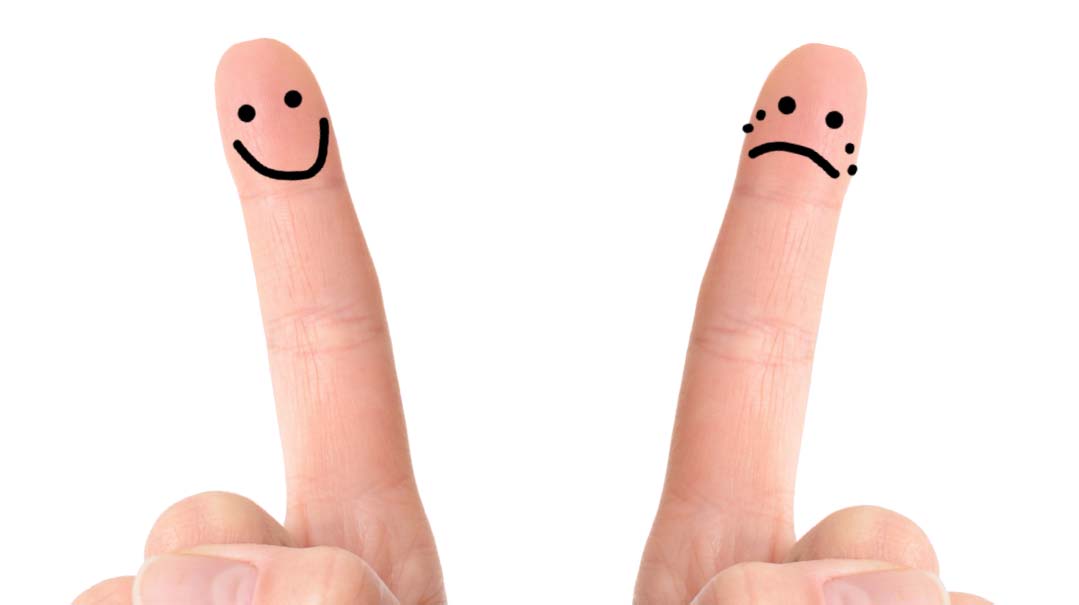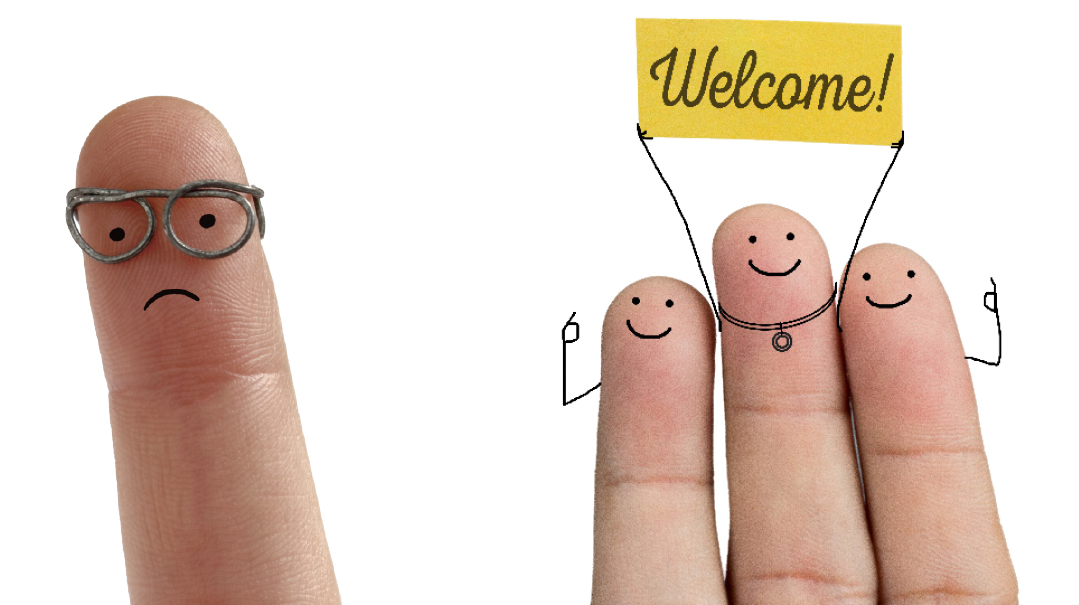How can I balance this relationship?

My friend is needy and negative. I don’t want to get sucked in

You asked
I’ve been blessed with a large family, b”H. The COVID-19 outbreak has meant all ages and stages are suddenly home together. This translates into varying emotional and physical needs to be met all day, every day. It’s exhausting, and if I don’t stay one step ahead, it can spell disaster for everyone.
For every person “staying one step ahead” will mean something else; for me, it’s focusing on my family (easier said than done — it’s a full-time job), my simchas hachaim (also easier said than done, and also a full-time job), working to keep my house in order (let’s not even go there!), and trying to ensure there’s normalcy and security inside my home.
Truthfully, nurturing friendships and connecting with friends hasn’t been on my radar for the past three months. I’m not a martyr; it’s simply not a need I have. If I do want to connect for a few minutes, I find myself gravitating toward the friend or two whose approaches are similar to mine and who understand my particular situation. A funny text, a quick phone call with my coffee, an upbeat checking-in to see how the other is doing. Key word: Upbeat.
There’s a particular friend who I struggle interacting with these days. In the best of times she’s more emotionally needy; she has a number of challenges,, and her way of coping is deep relationships with others. In “normal times,” this is manageable (albeit occasionally difficult) for me, but now her struggles are exacerbated, as is the intensity of her personality.
The COVID-19 outbreak has her checking the news all day and stressing about the terrible things going on — and feeling the need to share it all (George Floyd and protests have now taken over…).
I’d be able to tune this out, but the real challenge is the constant venting and complaining about how hard it is to be home with her kids day after day, how their issues are not manageable, her house is not manageable, she has no help, no break... on and on and on. She’s not looking for solutions; she’s looking for validation, sympathy, and agreement.
This is really hard for me. Too many of my nearest and dearest have suffered personal tragedies — I don’t need the statistics and numbers she reports to me from the news. Secondly, I can’t be focused on doom and gloom all day! I need to focus on keeping upbeat, positive, and sane. My time for “reality” is at night when I say Tehillim; the adrenaline is gone and I can let go. I’m not concerned about my children seeing me cry when I daven — that’s not traumatic or negative. What is traumatic is a mother who is stressed, tense, and feeling sorry for herself for three months straight.
I’ve pulled back considerably from my friend because a) I can’t be sucked into the non-stop negativity and b) there’s no way I can give her what she needs. How many times a day can I respond, “Oyyyy! I feel so bad! Yes, it’s so hard!” to a text? Especially when “Oy!” is not good enough; she wants to play volleyball with the complaints. She’s expecting me to lob back a stream of daily complaints to her as well so “we’re all in this together.”
I know she’s hurt that I’ve pulled away when she needs friends most, but I don’t see how to navigate this. I’ve tried to subtly and tactfully explain how helpful positivity has been during this time, but it’s not something she can internalize. (I know she needs professional help, but I’m not in a position to suggest that.) I feel bad; she’s a good person, but her needs are extreme, and I don’t have the emotional capacity, while trying to care for my own and my family’s needs, to also be a therapist or even sounding board.
On the other hand, I don’t want to hurt her. She’s told me many times how I’m “her sanity.”
How can I balance this relationship?
We answered
Mrs. Chaya Rochel Satt M.Sc. maintains a private practice for adults and couples in Yerushalayim for the past 10 years. She has specialty training in Somatic Experiencing and EMDR for Trauma Intervention.
Your question is complex and seems to be built on a number of layers. There’s your own self and family to care for, current life circumstances, and the burden of the intensity of this relationship.
I sense you’re also grappling with an element of guilt: you’ve developed a way of managing — albeit with hard work — and feel bad that you’re not in the “non-managing boat.” You seem to feel that your friend would rather hear you’re not okay and have you kvetch alongside her.
I suggest we first pull back the layers of what’s really upsetting you. In a complex situation with many layers, we often address symptoms of the problem rather than what upsets us most. When we do that, we find ourselves putting in more effort than we’d like in the side issues, and feeling frustrated by the lack of emotional resolution.
So let’s take a moment to explore what’s triggering you here. Are you overwhelmed with the needs of your own family to the extent that this chessed isn’t something you have time for? Are you feeling responsible to ease your friend’s pain — a responsibility you know you’re bound to fail at? Are you feeling guilty for your ability to function and maintain a healthy home during this trying time? Perhaps you’re struggling with the fact you’ve been put in a position where you need to respond in a way that’s neither authentic nor honest. This struggle can range from being mildly annoyed to frustrated or even angry.
Once you identify what’s really bothering you (and there may be more than one thing), give yourself permission to fully feel the feelings. Society and the concept of character-building often have us believing we shouldn’t feel a certain way. However, those feelings are very much present, looming, and possibly destroying the relationships you have. Tell yourself it’s okay to feel the way you do.
Then comes the issue of dealing with this friend. It’s clear that the concept of self-care is one you appreciate and already incorporate, whether through talking to other friends or taking time for yourself. This is key, as a broken vessel can’t fill another vessel, so let’s not underestimate the importance of caring for self. Therefore, the buck may stop here and you may need to use all your strength and resources for this task, leaving little room for the intense needs of your friend.
If, however, you feel there’s space for you to give to her, the biggest gift you can offer is yourself. That means being a truly authentic and honest friend. Telling her what you believe she wants to hear is giving her a fantasy friend that either you or she has created.
Of course, tact and sensitivity are necessary. You can tactfully say that focusing on stress and negativity is hard for you right now because… (fill in the blank). What your friend needs most of all now, more than your commiseration, is a true and honest friend. Even if it may not be what she wants to hear right now, this will ultimately be more appreciated in the long run.
This process is a difficult one and may be go on for months. Sometimes we even find ourselves reflecting on these processes for years to come.
In the meantime, as you seem to be looking for some practical tips, I’d suggest you use two specific tools to guide you. First, the old adage that “chessed begins at home” means that your own emotional needs must be are prioritized over being there for your friend. That means not picking up the phone and not playing phony “volleyball” with complaints that you don’t really want to be sharing.
Second, I’d suggest you set aside a specific time, maybe weekly, or more if you’re able, when you’re in a healthy, strong, giving place, to connect with this friend.
Choose a time in advance and decide how long that time should be. Set yourself up with something nice to drink and no distractions, if possible. You may even want to prepare for that time by using some basic meditation or mindfulness skills.
Once the designated time begins, you can use that time to return her texts or return a phone call. Remember to keep to your time limit and end the conversation then if you feel the need to.
Your friend may notice that you’ve set boundaries in the relationship as phone calls and texts might have a delayed response, but she’ll also notice she hasn’t been abandoned and you’ve prioritized time for her. Setting boundaries for this relationship in an organized and pre-focused way will allow you not to get caught off guard and be less affected by her emotional turmoil.
I wish you much hatzlachah in navigating this sensitive relationship.
Fab Friendships
We all learn what relationships are and how to develop them at a very young age. Our primary relationships pave the way for our future relationships. Friendships are no exception to this.
Our early childhood relationships create a template in our psyche of what to expect from others, what we can offer others, and how much we can trust others.
What also comes along with this is that we often seek to find what we’ve been missing in our core familial relationships in our friendships (and we all have something to heal from, even if we were raised in the most secure and safe family environments). This isn’t a problem , but rather a part of how we develop, grow, and engage with the world around us.
Building awareness of what we’re seeking in relationships in terms of our personal history will allow us to have our needs met in healthy ways.
(Originally featured in Family First, Issue 697)
Oops! We could not locate your form.












